Ask Our Alumni
Seton Hall anthropology/what do you think is unique about Seton Hall’s anthropology program?
“I chose to transfer to SHU during my junior year of college because I wanted to be able to connect and learn from faculty that would support my areas of interest. To this day, my favorite courses at Seton Hall were West African Religions with Dr. Savastano and Visual Anthropology with Dr. Quizon.” – Sarah J Krinsky ’15
Meet Our Alumni
♦ Edward Millar ’12
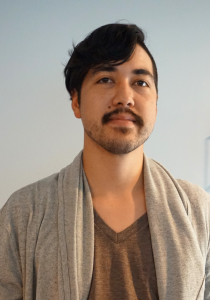 Edward Millar’s career has taken him to Niagara University where he has been the Curator of Folk Arts at the Castellani Art Museum since 2015. He is also an adjunct professor teaching Art History for the Museum Studies Program. At the museum, he preserves, supports, and raises awareness of cultural traditions actively practiced in the local region from musicians, to artists, to crafters. In 2021, he was a Fellow of the Library of Congress through the Archie Green Fellowship at the American Folklife Center, joined the New York Folklore Board and launched a Youtube channel on Castellani Art museum’s activities and initiatives. Though it is difficult for Edward to narrow down his favorite course while attending Seton Hall, he believes that Dr. Savastano’s Anthropology of Consciousness was thought provoking and an interesting topic for which he has grown a deep appreciation. Ed graduated in 2012 (Magna Cum Laude) with a BA in Anthropology & a minor in History while part of the University Honors program. He completed an MA in Folklore at Memorial University of Newfoundland in 2014.
Edward Millar’s career has taken him to Niagara University where he has been the Curator of Folk Arts at the Castellani Art Museum since 2015. He is also an adjunct professor teaching Art History for the Museum Studies Program. At the museum, he preserves, supports, and raises awareness of cultural traditions actively practiced in the local region from musicians, to artists, to crafters. In 2021, he was a Fellow of the Library of Congress through the Archie Green Fellowship at the American Folklife Center, joined the New York Folklore Board and launched a Youtube channel on Castellani Art museum’s activities and initiatives. Though it is difficult for Edward to narrow down his favorite course while attending Seton Hall, he believes that Dr. Savastano’s Anthropology of Consciousness was thought provoking and an interesting topic for which he has grown a deep appreciation. Ed graduated in 2012 (Magna Cum Laude) with a BA in Anthropology & a minor in History while part of the University Honors program. He completed an MA in Folklore at Memorial University of Newfoundland in 2014.
“I cannot stress it enough – start your internships as soon as possible, and try and do a few (but not more than one at once). Be critical / reflective while doing them – is it a field you can envision yourself working in? What do you like? What don’t you like? These are all questions that should be asked as an intern / undergraduate, while the expectation of that career flexibility is still there. It is alright to ask those types of questions later on – you should never feel pigeonholed into a particular career path.”
♦ Paul Bryant ’07
 Paul Bryant is currently working for renowned apparel company Supreme in New York City where he is responsible for fabric sourcing, design, and product development. Apart from Anthropology, he also majored in Environmental Studies. While at Seton Hall he led the founding of the Ecology Club and was one of nine founding members of the university’s chapter of Lambda Alpha, the National Anthropological Honor Society. Paul’s favorite course at Seton Hall was Introduction to Anthropology with Dr. Quizon because it sparked his interest in the subject. He graduated in 2007 with a BA in Anthropology with a second major in BA Environmental Studies.
Paul Bryant is currently working for renowned apparel company Supreme in New York City where he is responsible for fabric sourcing, design, and product development. Apart from Anthropology, he also majored in Environmental Studies. While at Seton Hall he led the founding of the Ecology Club and was one of nine founding members of the university’s chapter of Lambda Alpha, the National Anthropological Honor Society. Paul’s favorite course at Seton Hall was Introduction to Anthropology with Dr. Quizon because it sparked his interest in the subject. He graduated in 2007 with a BA in Anthropology with a second major in BA Environmental Studies.
“Use your education to unlock a dynamic understanding of the world. Follow your passions and you will see how you can contribute in a way that is both positive and meaningful for yourself and society.”
♦ COMING SOON: Samson Mobashar ’12
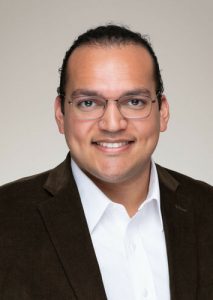 Samson Mobashar is currently Chief of Staff at Ballet Memphis. As an undergraduate in Anthropology, he minored in Music, pursuing formal voice lessons alongside independent academic research projects on topics that range from the evolutionary significance of music to the vicissitudes of European armchair anthropology in the 19th century. He joined Teach for America in 2013 that brought him to the City of Memphis as an educator, a career that he pursued with characteristic enthusiasm and engagement for many years before pivoting to arts management and advocacy. Watch this space to hear more from Samson!
Samson Mobashar is currently Chief of Staff at Ballet Memphis. As an undergraduate in Anthropology, he minored in Music, pursuing formal voice lessons alongside independent academic research projects on topics that range from the evolutionary significance of music to the vicissitudes of European armchair anthropology in the 19th century. He joined Teach for America in 2013 that brought him to the City of Memphis as an educator, a career that he pursued with characteristic enthusiasm and engagement for many years before pivoting to arts management and advocacy. Watch this space to hear more from Samson!
♦ Angela Ashman ’15
Angela Ashman is currently an account executive at Education First in their Cultural Care division in Cambridge, MA. Prior to this position, she worked at the Better Business Bureau of New England, interned with the Institute of Contemporary Art in Boston, and worked for cultural and educational travel organizations while pursuing her master’s degree. Her favorite courses at Seton Hall were Visual Anthropology with Dr. Quizon and Folklore and Mythology with Dr. Savastano. She earned her BA in Anthropology in 2015 with minors in Archaeology as well as Women and Gender Studies. In 2018, she went on to complete her Master’s degree in Anthropology from the New School of Social Research in New York City.
“Make the most of your time at SHU, although the Anthropology department isn’t huge, we’re right outside of NYC so go volunteer, talk to the profs, they have amazing advice! Do as much as you possibly can to use the Anthropology/Sociology professors as resources. Ask questions, ask what you can do better, and what can set you apart from everyone else. This will not only help in your academic careers, but in your professional careers.”
♦ Nicole Benigno ’13
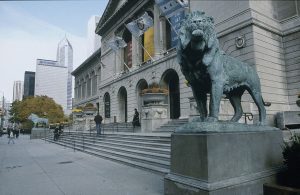 Nicole Benigno is working at the Art Institute of Chicago in Data Management cleaning up records and inputting data into Raiser’s Edge. During her time as an undergraduate, Nicole enjoyed classes revolving around Cultural Anthropology because it gave her an opportunity to think broadly about different peoples and cultures. She is also very grateful for the opportunities she had at Seton Hall, specifically working with Dr. Quinn on the early stages of SHUMAA (Seton Hall University Museum of Anthropology & Archaeology). Nicole earned her BA in Anthropology with a minor in Art History in 2013 and went on to complete a Master’s degree in Museum Studies at the University of Indiana.
Nicole Benigno is working at the Art Institute of Chicago in Data Management cleaning up records and inputting data into Raiser’s Edge. During her time as an undergraduate, Nicole enjoyed classes revolving around Cultural Anthropology because it gave her an opportunity to think broadly about different peoples and cultures. She is also very grateful for the opportunities she had at Seton Hall, specifically working with Dr. Quinn on the early stages of SHUMAA (Seton Hall University Museum of Anthropology & Archaeology). Nicole earned her BA in Anthropology with a minor in Art History in 2013 and went on to complete a Master’s degree in Museum Studies at the University of Indiana.
“Take every opportunity you can and don’t be afraid to ask questions or go to your teachers/advisers for help. They are all extremely knowledgeable, and offer fresh perspectives, and are great to just talk with if you need it! They are always looking out for their students and is the best resource you could have.”
♦ Maria Barca ’17
Maria received her Master of Science in Anthropology with a concentration in Archaeology from the University of Wisconsin-Milwaukee in May of 2020 and ever since August of 2020, has started teaching as an adjunct professor of anthropology at Seton Hall University. Maria has since taught: Intro to Physical Anthropology, Intro to Cultural Anthropology, Health and Medicine: An Anthropological Approach, and Sociology of Health and Medicine. Throughout her time as a graduate student, Maria conducted research and wrote her master’s thesis titled, The Impact of Gender and Class on Disease and Trauma in 18th Century London: A Case Study of Three Cemetery Populations. Throughout this brilliant piece, Maria examines 18th c. cemetery populations in London through statistical and osteological methods, how socially prescribed class and gender roles during this time may have impacted certain groups’ affliction to trauma and disease. Maria is now back at the University of Wisconsin-Milwaukee in pursuit of her Master of Library and Information Science (MLIS) in which she anticipates being completed by the end of Fall, 2022. Currently, Maria is gathering experience by volunteering with Seton Hall’s library, where she works the virtual reference service, holds in-person and virtual research consultations, and joins various classes, observing, and holding instructional sessions.
One of her favorite courses at Seton Hall was Gender and Art and subsequently published her work in the inaugural issue of Locus: The Seton Hall Journal of Undergraduate Research. Her other favorite course was Human Osteology with Dr. Quinn where she was able to receive comprehensive, in depth understanding of the human skeletal system. Maria graduated in 2017 with a BA in Anthropology along with a minor in Women and Gender Studies.
“Explore the four fields of anthropology as thoroughly as possible throughout your undergraduate careers. As you take your introductory courses in anthropology, you will come face-to-face with the exciting uniqueness of our four-field approach and what each field has to offer. With time, you will find the subfield(s) that interest you the most. As you move forward into graduate school or a career with a specific subfield in mind, remember what the other subfields taught you. We are scientists that study humans and humanity in all of its confusing, strange, and amazing forms. With a comprehensive understanding of what each corner of anthropology has to teach us, we can only better ourselves as scholars—and humans—in all of our confusing, strange, and amazing forms, too.”
♦ Sarah Krinsky ’15
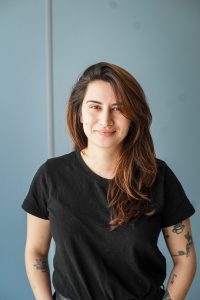 After receiving her BA in Anthropology and Sociology from SHU, Sarah Krinsky, went on to receive a MS in Arts Administration from Le Moyne College. Currently, Sarah is the co-owner of the curated retail store and café W. Collective located in Bennington. W. Collective’s mission is to highlight women+ (all-inclusive) vendors and artisans by sharing a space and working to uplift one another. Sarah is also the Associate Director of Career Development and Field Work Term at Bennington College. In this role, Sarah works with students to assist them with finding potential internships and job opportunities that align with their area(s) of focus.
After receiving her BA in Anthropology and Sociology from SHU, Sarah Krinsky, went on to receive a MS in Arts Administration from Le Moyne College. Currently, Sarah is the co-owner of the curated retail store and café W. Collective located in Bennington. W. Collective’s mission is to highlight women+ (all-inclusive) vendors and artisans by sharing a space and working to uplift one another. Sarah is also the Associate Director of Career Development and Field Work Term at Bennington College. In this role, Sarah works with students to assist them with finding potential internships and job opportunities that align with their area(s) of focus.
What are you most proud of accomplishing during your time at Seton Hall?
“I was able to intern at the brand Anthropologie and centered my senior thesis around “The Anthropology of Anthropologie” focusing on the value of visual display in western civilization. It was a great opportunity to gain insight on the importance of connecting my two passions working in retail and studying anthropology.”
“My advice to current students is to take advantage of all of the different opportunities available whether it is an internship or study abroad program because it is important to have a diverse background that is filled with unique experiences that you can share with others. Also, I recommend taking classes that are intriguing and sometimes differ from your course of study… that’s how I discovered my interest for anthropology.”
♦ Anastasia Bushey ’17
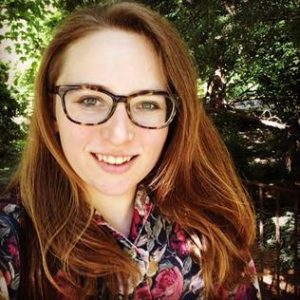 Anastasia Bushey is currently working for the New York Public Library, attending Queens College at the City University of New York and interning at the Staten Island Museum. She is in the process of obtaining her Masters in Library Science and assisting in research for a women’s suffrage exhibit at Staten Island Museum that will open in 2019. During her senior year, Anastasia volunteered at the Seton Hall University Archives and worked off campus on the papers of the late anthropologist and pioneer in ethnoscience Harold Conklin at Yale University. Her favorite course at Seton Hall was Visual Anthropology with Dr. Quizon. She graduated in 2017 with BA degrees in Anthropology and in Social and Behavioral Sciences, and earned minors in History as well as Psychology.
Anastasia Bushey is currently working for the New York Public Library, attending Queens College at the City University of New York and interning at the Staten Island Museum. She is in the process of obtaining her Masters in Library Science and assisting in research for a women’s suffrage exhibit at Staten Island Museum that will open in 2019. During her senior year, Anastasia volunteered at the Seton Hall University Archives and worked off campus on the papers of the late anthropologist and pioneer in ethnoscience Harold Conklin at Yale University. Her favorite course at Seton Hall was Visual Anthropology with Dr. Quizon. She graduated in 2017 with BA degrees in Anthropology and in Social and Behavioral Sciences, and earned minors in History as well as Psychology.
“My advice for current students is to take internships and to work on projects that interest you, the earlier the better.”
♦ Michelle Prizzi ’18
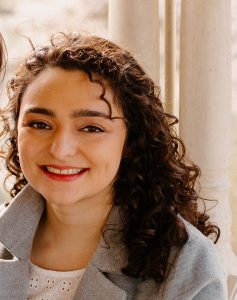 Michelle Prizzi is the Administrative Research Manager at the Johns Hopkins Transplant Research Center (TRC). The Johns Hopkins Transplant Research Center is a multidisciplinary research organization between the Division of Infectious Diseases/Department of Medicine and the Division of Transplantation/ Department of Surgery. The TR is composed of four research cores and runs complex, multicenter research studies, within the United States. She is currently attending a graduate program at Towson University for her Master’s in Health Science.
Michelle Prizzi is the Administrative Research Manager at the Johns Hopkins Transplant Research Center (TRC). The Johns Hopkins Transplant Research Center is a multidisciplinary research organization between the Division of Infectious Diseases/Department of Medicine and the Division of Transplantation/ Department of Surgery. The TR is composed of four research cores and runs complex, multicenter research studies, within the United States. She is currently attending a graduate program at Towson University for her Master’s in Health Science.
“Get to know your professors and to exhaust them as resources. I truly believe I am successful because I had fantastic professors that challenged me and gave me opportunities to seek out topics I found interesting. They fostered a love for research that I get to bring to my job everyday.”
♦ COMING SOON: Monet Watson ’20
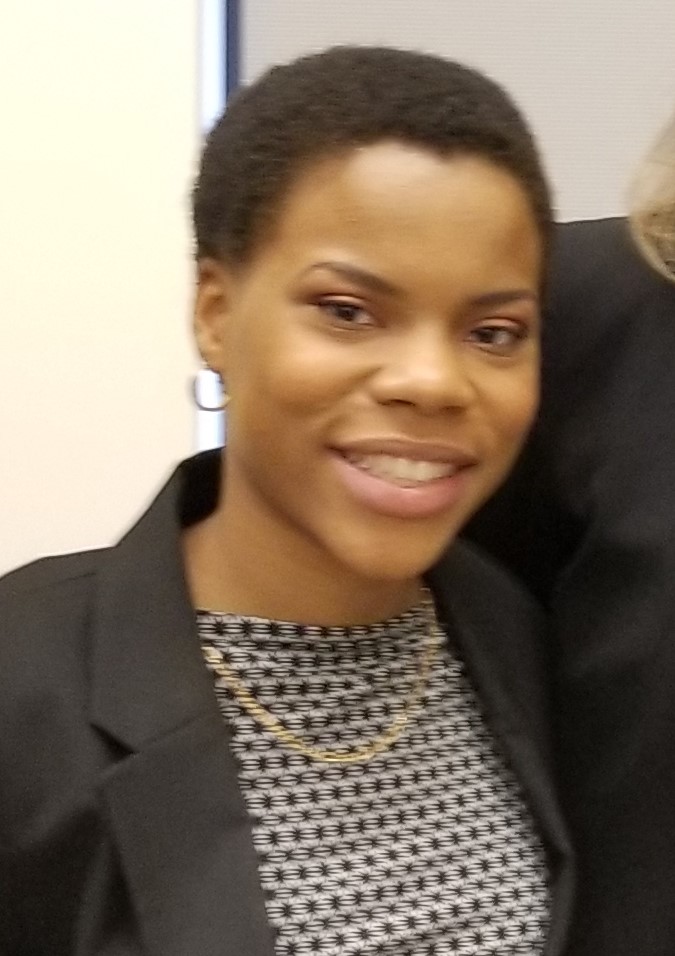 Monet Watson will begin her Ph.D. program in Historical Anthropology at the College of William and Mary, Williamsburg, VA in Fall 2022. This Sacramento, CA native who loves her hometown is looking forward to returning to the East Coast and building on prior undergraduate research experiences while carving out new paths of inquiry. Watch this space to hear more from Monet. In the meantime, read more about her past research on the Woman in the Iron Coffin with Dr. Rhonda Quinn and her collaborations in anthropological research on Languages using Digital Humanities with her peers and Dr. Cherubim Quizon.
Monet Watson will begin her Ph.D. program in Historical Anthropology at the College of William and Mary, Williamsburg, VA in Fall 2022. This Sacramento, CA native who loves her hometown is looking forward to returning to the East Coast and building on prior undergraduate research experiences while carving out new paths of inquiry. Watch this space to hear more from Monet. In the meantime, read more about her past research on the Woman in the Iron Coffin with Dr. Rhonda Quinn and her collaborations in anthropological research on Languages using Digital Humanities with her peers and Dr. Cherubim Quizon.